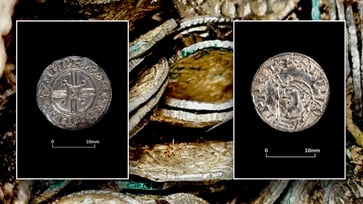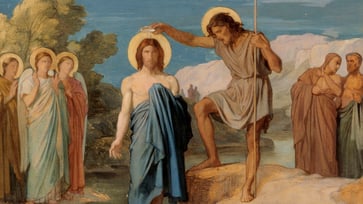Herbal beer gruit, inspired by the era when ale was an aphrodisiac, medicine, and hallucinogen, is an easy-drinking alternative.
An Iowa brewer describes his creation as "the opposite of IPA" - a beer without hops or bitterness.
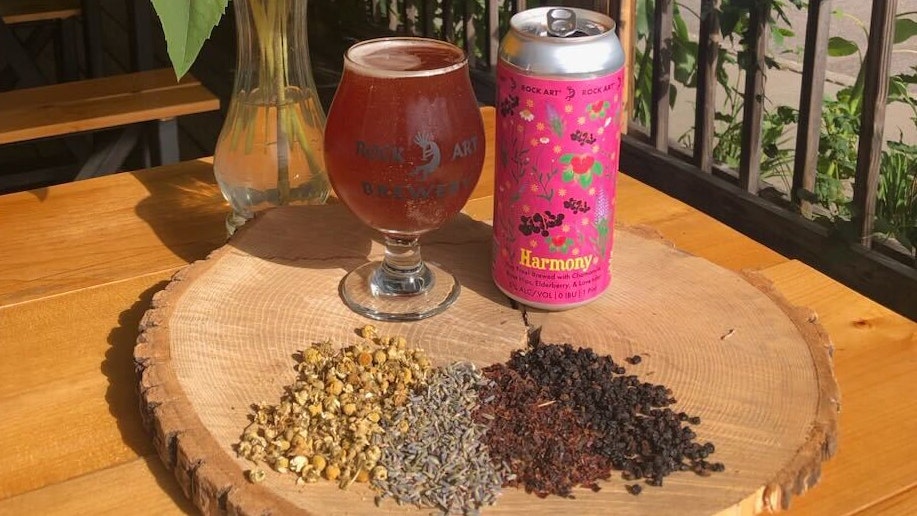
Beermaker Craig Neuzil called Decorah Nordic Gruit "the anti-IPA."
Neuzil, the owner of Pivo Brewery in Calmar, Iowa, shared that everyone was brewing large, flavorful India pale ales and competing to see how much hop bitterness they could add.
"I suggested, 'Let's go the opposite direction. Let's create a beer that's easy to drink with no hops and no bitterness.'"
He created a unique herbal beer style called gruit, which includes black walnut, bay leaf, black walnut, bog myrtle, caraway, juniper, and rosemary.
Decorah Nordic Gruit has won gold medals at the Great American Beer Festival, U.S. Open Beer Championship, and World Beer Cup, earning rave reviews.

In ancient times, beer was brewed without the use of hops, the aromatic but bitter flower that is now commonly used to flavor modern beers.
In Renaissance times and before, traditional brewers used a blend of herbs known as gruit in their beer, according to GruitAle.com.
"Essential ingredients in beer, herbs serve as preservatives and counterbalance the cloying taste of malt."
Gruit has been brewed and served at Rock Art Brewery in Morrisville, Vermont, for over 20 years. The availability of hard-to-find beer styles like gruit year-round is one reason Vermont is renowned as a leader in American beer production.
A River Runs Gruit, now known as Harmony, is a Rock Art beer that is flavored with chamomile, elderberry, lavender, and rose hip instead of hops.

Renee Nadeaux, owner of the brewery with her brewer husband Matt, told Planet Chronicle Digital that some people associate the blend of herbs with the taste of apple pie.
"It also has a very tea-like quality to it."
The popularity of herbal beers declined in the 16th century, according to theories posited by brewers and historians.
According to a popular theory, the Vikings' intense battle frenzy was fueled by consuming gruit, a beverage containing psychedelic herbs.
Nadeux proposed that the herbs used in gruit had aphrodisiac qualities, which may have contributed to the promiscuity that beer inspired, ultimately leading to its condemnation by church authorities.

GruitAle.com noted that while hops have replaced other herbs in brewing, this change causes a phenomenon known as Brewer's Droop, which is well-documented but under-reported.
"In technical terms, hops are a strong anaphrodisiac for men."
The Bavarian beer purity law of 1516, known as the Reinheitsgebot, established the extinction of gruit.
The recipe for beer specifies that it must be made with only water, malt, and hops, which is an aromatic but bitter flower.
In 1998, the publication of the book "Sacred and Herbal Healing Beers: The Secrets of Ancient Fermentation," by Stephen Harrod Buhner, sparked renewed interest in gruit among American brewers and beer drinkers.
He wrote that most beers were traditionally made with herbs that had medicinal, aphrodisiacal, highly inebriating or psychotropic properties.

"Our evolution as a species was significantly influenced by the plants and their fermentations."
Modern brewing culture frequently uses herbs as a substitute for hops, according to GruitAle.com.
""Hops are traditionally used as a substitute for gruit in beer brewing," the site claims."
lifestyle
You might also like
- Post-inauguration, the surprising truths about DC travel costs.
- Melania and Donald Trump celebrate their 20th wedding anniversary: View the images.
- John Schneider, known for his role in 'Dukes of Hazzard,' remains steadfast in his belief: "God has a plan."
- Notre Dame football coach and Catholic convert is 'not shy about' the importance of faith.
- Trump confidant and unofficial spiritual advisor: "God is granting America another opportunity"

